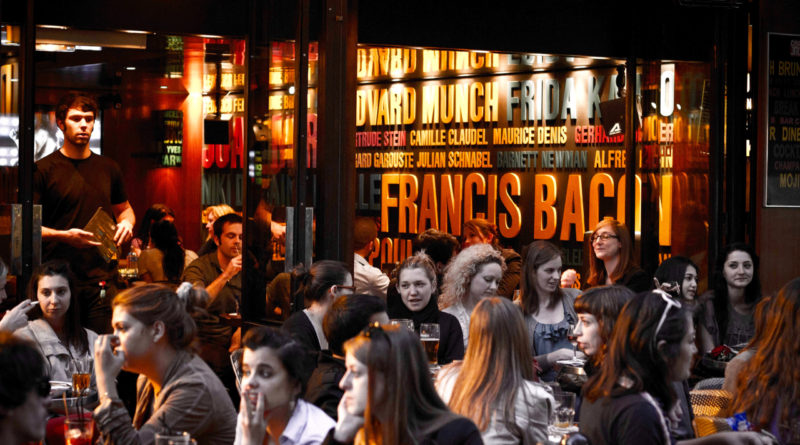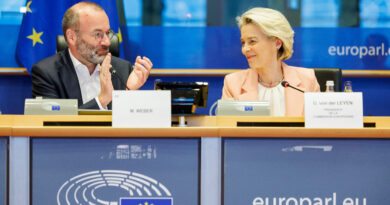What is the EU? Here is the answer, and the reason why you still suffer from Brexit blues

“What is the EU?” was the second most googled query in the UK the day after the EU referendum. The answer is deeper than many believe and touches on values and identity, but the sentiment towards the EU varies in different countries. “The answer Britain has given to this question over the past 40 years has a lot to do with the vote to leave the European Union,” says Edoardo Ongaro, Professor of International Public Services Management at Northumbria University in Newcastle. “The way the British elite and the people have been part of the EU has prepared the outcome of the referendum.”
So what is the European Union?
The European Union is an unprecedented experiment in Europe to create a space where people share the same rights and duties independently of national borders. Since the beginning, in 1957, the idea was to create a European identity so that, after centuries of conflicts and two World Wars, people from different countries would stop looking at each other as enemies. It is a political project based on the very modern idea that it is possible to have more than one identity – local, national, European – and this is enrichment, not a loss. This is the most original element of the EU and is what freedom of movement for people is about.
Why do you think the UK has not caught up with this idea?
The UK joined the European Community only in 1973. It has always seen Europe as a market and the European Union as a trade agreement, pretending to decouple the political and the economic dimensions and to benefit from the latter totally averting the former. Trade is indeed a major part of the EU project and is covered by the freedom of movement of goods, services and capitals. But it is not everything. The European Union was awarded the Nobel Peace Prize in 2012 for having brought reconciliation in the continent, not for having created the single market. Also, if you consider the EU only as a market, the risk is to include people in this frame and to treat them as “bargaining chips”, as we often read these days.
But in Scotland and Northern Ireland, as well as in many cities in England, there seems to be a sense of European identity.
And this is probably why for many people – those who feel European – it will take a long time to recover from the shock. Part of their identity has been denied by the vote. The paradox is that the result of the referendum and the exit from the European Union now also risk to intensify internal divisions.
In which countries is the European sentiment stronger?
Opinion polls fluctuate and, I think, only capture the surface of reality. It seems to me that the sentiment towards the EU might be deeper than it is currently represented, especially in the founding countries (Germany, France, Italy, Belgium, Luxembourg and the Netherlands) and in Mediterranean states.
A political project requires democratic institutions and many people argue the EU is not democratic.
The EU institutional set up is the most democratic among multilateral organisations. The European Parliament is directly elected by people (whether in certain countries the turnout is very low is another matter). The European Council is made of representatives of national governments, so it expresses indirectly the vote of the people. The European Commission, the “government” of the EU, has to be approved by both Council and Parliament. The laws it proposes alo haveto be approved by the Council and the Parliament and some of them are then ratified by the national parliaments. It is a system inspired by the institutional models of all its countries. Some may prefer a direct election of the president, but that reflects a model used only in few EU states and would present the difficulty of campaigning in different countries and different languages.
Why do you think in the last 15 years there has been growing disaffection for the European Union?
Little solidarity has been accepted as the normal way of operating among governments. As a result, people have started to think about the EU only in terms of convenience. Like a young person who thinks that becoming adult means abandoning ideals, values and noble sentiments and caring only about the career. An easy temptation, but it does not make you a better adult. Overall, I think both the people and the elites should be more proud of what they have done in Europe over the past sixty years.
Interview by Claudia Delpero. © All rights reserved.
Read more on this topic:
To avoid another Brexit let’s stop treating citizenship as a birthright. Scott Smith on Quartz, 16 August 2016. The EU membership may trigger a radical redefinition of citizenship. A German minister suggested the prospect of dual citizenship for UK citizens, while Italian prime minister said British students could apply for Italian passports. Meanwhile, applications for Estonia’s e-residency, which is for business purposes and does not give EU residency rights, jumped.
Upset by Brexit, Some British Jews Look to Germany. Kimiko de Freytas-Tamura on the New York Times, 15 August 2016. Some British Jews are applying for German citizenship using a provision that allows anyone stripped of the citizenship “on political, racial or religious grounds” by the Nazis to have it restored.
Brexit X-men: how the prime minister’s key negotiators are coping. Toby Helm on The Guardian, 21 August 2016. After years of bickering with the EU, the complexities of Brexit are only now being grasped by the British establishment.
In the photo: Edoardo Ongaro
Header: photo courtesy Wikimedia. Latin Quarter, Paris, France, by Terence S. Jones [CC BY 2.0]






I am not suffering from ‘Brexit Blues’
Quite the opposite.
Instead a sense of relief that we have escaped this antidemocratic, unaccountable failed experiment
Vive le Brexit!
Thanks for a very informative blog. Where else could I get that type of information written in such a perfect means?
Very good post. I absolutely appreciate this site. Keep writing!
Excellent article. I definitely appreciate this website. Continue the good work!